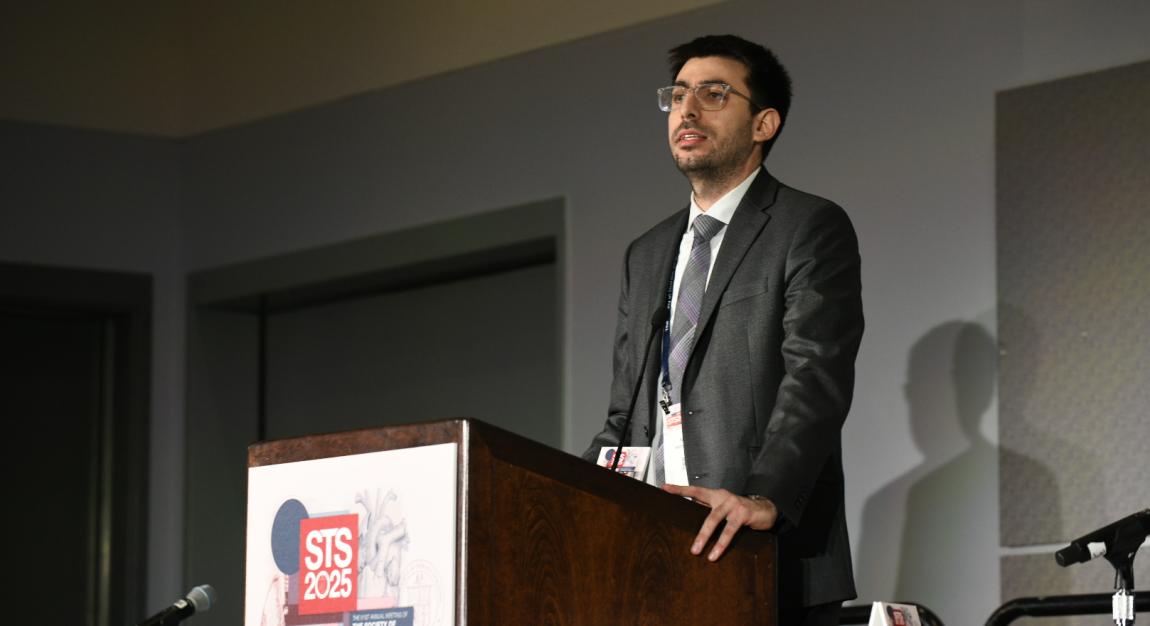In today’s 11:30 a.m. session, "Robotic Cardiac Surgery: The Future Is Now," Dr. Tedy Sawma will discuss how mitral regurgitation, increasingly common in aging populations, presents unique challenges for older patients considering surgical treatment options. While mitral valve repair remains an effective solution, the invasiveness of traditional open-heart surgery often discourages both patients and healthcare providers.
In the Outcomes of Robotic Mitral Valve Repair in Patients Older Than 65 Years presentation, study investigators will highlight findings on robotic mitral valve repair in older patients, comparing outcomes with those from traditional median sternotomy. The study evaluates both short-term and long-term outcomes to determine whether robotic surgery offers advantages in recovery, quality of life, long-term survival, and the need for future interventions.
Researchers analyzed data from a cardiovascular surgery database, tracking patients who underwent their first isolated mitral valve repair between 2010 and 2024. They compared the outcomes of robotic procedures with those of traditional median sternotomy surgeries, adjusting for factors like age, gender, and comorbidities.
Primary outcomes included long-term all-cause mortality and the need for reinterventions, while secondary outcomes focused on hospital recovery metrics such as blood transfusions, atrial fibrillation rates, and ICU stay durations.
The findings to be discussed include how robotic mitral valve repair offered short-term advantages over traditional surgery, such as reduced ICU and hospital stays, fewer blood transfusions, and lower rates of postoperative atrial fibrillation. However, no significant differences were observed in long-term survival or the need for future interventions. Both groups maintained excellent physical activity levels and quality of life over the years. These results suggest that robotic mitral valve repair is a viable option for older patients, providing enhanced short-term recovery without compromising long-term outcomes.
